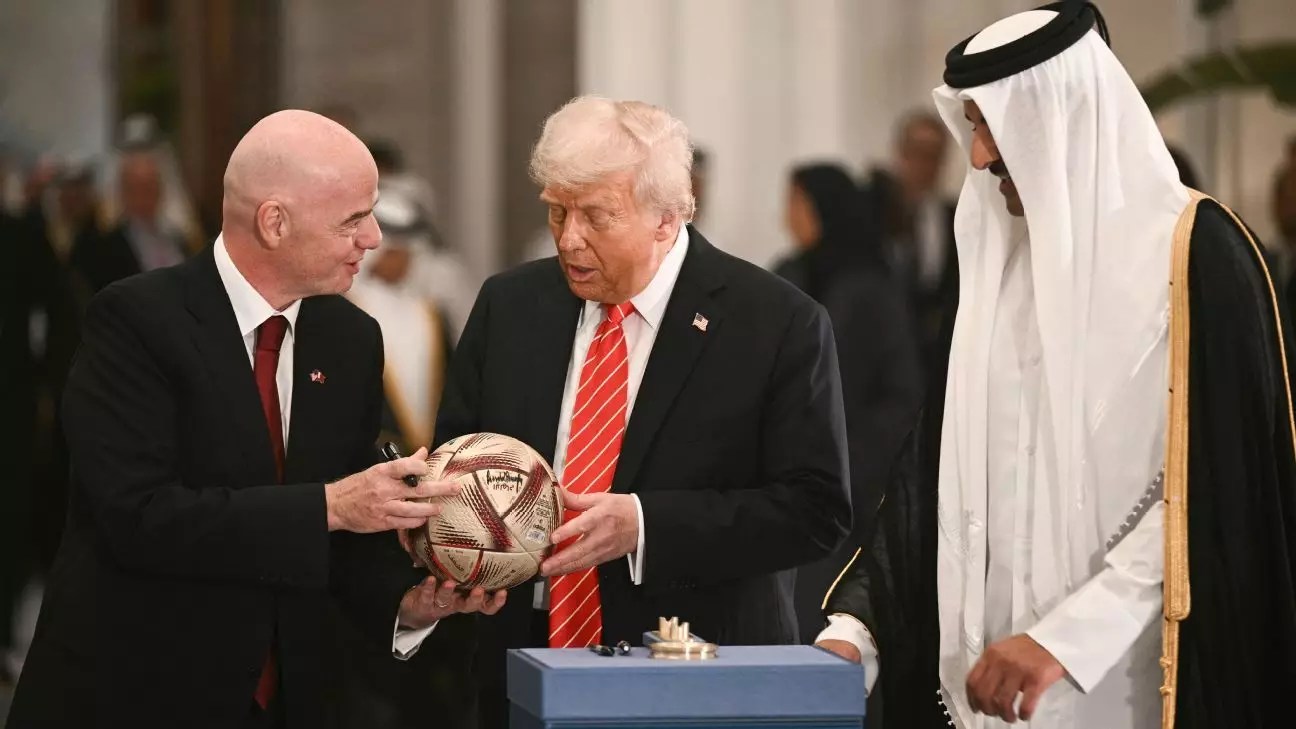In a surprising turn of events at FIFA’s annual gathering of member federations, President Gianni Infantino’s tardiness exemplified a critical lapse in leadership and prioritization. Originally scheduled to commence at 9:30 a.m. local time in Asuncion, Paraguay, the meeting’s start was significantly delayed due to Infantino’s late arrival aboard a Qatari private jet from Doha. The flight, which included an unexpected layover in Nigeria, left delegates waiting for over three hours. This not only raised eyebrows but also ignited discussions about the appropriateness of Infantino’s decisions and their implications for the organization he leads.
The delay prompted some senior officials, including UEFA President Aleksander Ceferin and others, to leave early, sparking speculation about whether their departures were due to prior commitments or covert protests against Infantino’s repeated apologies for being late. Such behavior appears to echo a troubling trend in leadership styles where personal commitments overshadow organizational responsibilities. How can a leader effectively claim to advocate for football when their actions suggest otherwise?
The Political Circus versus Sporting Integrity
Infantino himself justified his absence, claiming that his presence at political meetings in the Middle East was essential for representing football interests. However, this raises critical questions about the priorities of FIFA’s leadership. The rationale that attending a political gathering supersedes direct engagement with member federations feels disingenuous, particularly when critical discussions and decisions regarding the upcoming 2026 World Cup await. The notion that political maneuvering outweighs the sports agenda is a disheartening perspective for those who believe in the unifying power of soccer.
The relationship between Infantino and political figures, such as the former U.S. President Donald Trump, further complicates matters. Infantino’s close ties with the Trump administration suggest a blending of sports governance with political diplomacy. While fostering global connections is essential, it should never come at the cost of neglecting the very fabric of the organization that governs the sport. The emphasis on diplomatic engagements raises alarms about whether FIFA is becoming more of a political entity than a sports organization.
A Strained Dynamic with Major Soccer Entities
In a broader context, Infantino’s actions have ramifications that extend to the fabric of global soccer governance. UEFA and CONMEBOL, two of the most influential soccer organizations, view these developments with a critical eye. Their uneasy relationship with FIFA’s leadership underscores the growing discontent within the sport’s hierarchy. With key representatives of European soccer visibly absent during parts of a critical meeting, it begs the question of whether FIFA’s current administration can foster a cooperative environment essential for the sport’s growth and unity.
As Paraguayan President Santiago Peña praised Infantino as a “personal friend,” it highlights the potential for cronyism within FIFA’s leadership structure. Peña’s assertion that he influenced Infantino to bring significant FIFA events to Paraguay indicates a commendable ambition for the nation; however, it poses the risk of decisions driven more by personal alliances rather than meritocratic considerations for the game.
The Trophy that Matters: A Misplaced Priority?
The presence of the Club World Cup trophy during this tumultuous meeting was a poignant reminder of the tangible rewards that accompany soccer’s elite tournaments. It served as both an inspiration and a disappointment. While healthy competition and sporting victories merit a place of honor, the manner in which FIFA’s leadership chooses to prioritize political affiliations over crucial organizational matters sends a potent message that the governing body may be more focused on trophies than on truly fostering the growth and integrity of soccer worldwide.
Infantino’s decision to prioritize political meetings and his subsequent tardiness illustrate a growing rift between FIFA’s leadership style and the expectations of governing soccer. The implications extend beyond Paraguay and resonate across global football, raising questions about the alignment of ideals and actions. It’s time for FIFA leadership to reclaim its narrative, focusing on the sport rather than political payoffs, restoring trust within its ranks, and ensuring that the integrity of soccer remains paramount.


Leave a Reply